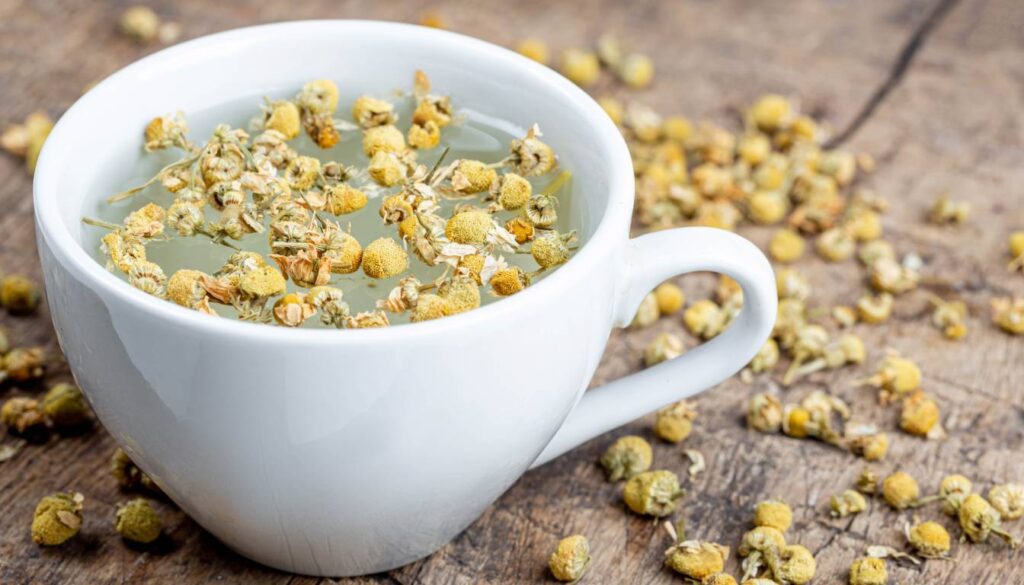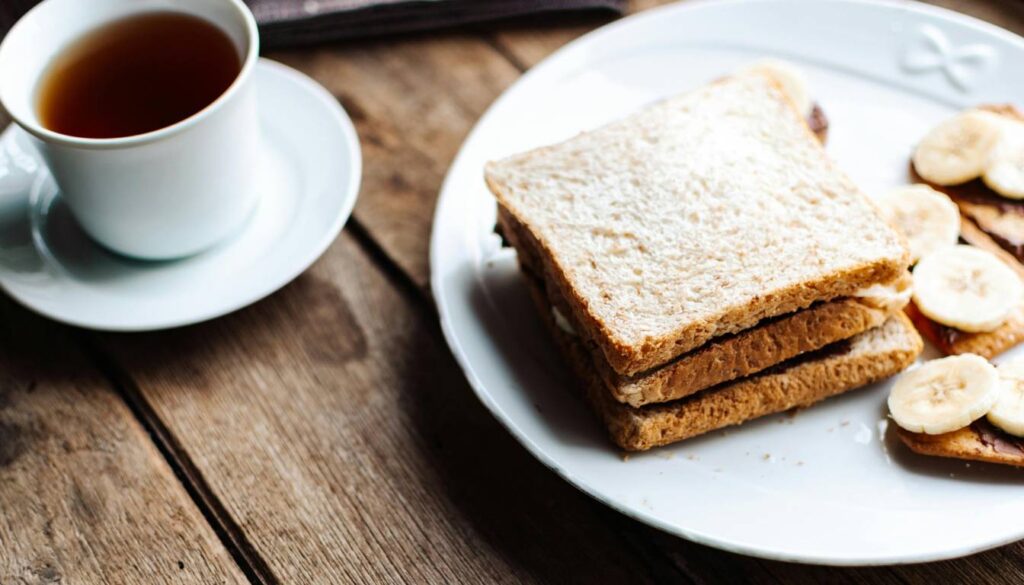Diarrhea is a common digestive issue that leads to loose, watery bowel movements. It can be uncomfortable, inconvenient, and even embarrassing. But don’t worry, I’ve got a solid selection of natural home remedies for diarrhea! Many effective options can help you find relief quickly and naturally. Let’s dive in and explore some great solutions!
In this article, you will learn about the common causes of diarrhea, the best home remedies for diarrhea, the foods and drinks to avoid when you have diarrhea, and when to seek medical help for diarrhea.
Common Causes of Diarrhea
Diarrhea can have many different causes, such as:
- A viral infection, such as norovirus, rotavirus, or coronavirus
- A bacterial infection, such as salmonella, E. coli, or campylobacter
- A parasitic infection, such as giardia or cryptosporidium
- Food poisoning from eating contaminated or spoiled food
- Traveller’s diarrhea from exposure to unfamiliar bacteria or parasites in foreign countries
- Antibiotic use, which can disrupt the balance of good and bad bacteria in your gut
- Irritable bowel syndrome (IBS), is a chronic condition that affects the large intestine and causes abdominal pain, bloating, gas, and diarrhea
- Inflammatory bowel disease (IBD), is a group of disorders that cause inflammation and ulcers in the lining of the digestive tract, such as Crohn’s disease or ulcerative colitis
- Food intolerance or allergy, such as lactose intolerance or celiac disease
- Stress, anxiety, or emotional distress
Some of these causes are temporary and mild, while others are chronic and serious. Depending on the cause and severity of your diarrhea, you may need different treatments and remedies.
What Is Good Home Remedy For Diarrhea?

The good news is that most cases of diarrhea are self-limiting and resolve within a few days. You can speed up the recovery process by following some simple home remedies that can ease your symptoms and restore your gut health. Here I have all the information you need for what is a good home remedy for diarrhea:
Organic Chamomile Herbal Tea – Get Yours Here
Chamomile tea is a soothing herbal tea that can help with diarrhea by reducing inflammation and spasms in the intestines. Organic Chamomile Herbal Tea – Get Yours Here. Chamomile tea also has antidiarrheal properties that can inhibit the growth of bacteria that cause diarrhea. Chamomile tea is also good for relieving stress and anxiety, which can trigger or worsen diarrhea.
You can make chamomile tea by steeping dried chamomile flowers in hot water for about 5 minutes. You can drink up to 3 cups of chamomile tea per day until your diarrhea subsides. However, you should avoid chamomile tea if you are allergic to plants in the same family as chamomile, such as ragweed, chrysanthemums, marigolds, or daisies.
BRAT Diet
The BRAT diet stands for bananas, rice, applesauce, and toast. These are bland, low-fibre foods that can help firm up your stool and replenish some of the nutrients and electrolytes lost through diarrhea. Bananas are especially helpful because they contain potassium, which is an essential mineral for nerve and muscle function. Rice, applesauce, and toast are easy to digest and provide carbohydrates for energy.
You can follow the BRAT diet for a short period until your diarrhea improves. However, you should not rely on it for too long because it is very restrictive and may not provide adequate nutrition. You should gradually add other bland but nutritious foods to your diet as your symptoms get better.
Probiotics – 25 Billion, with 10 Probiotic Strains – Get Yours Here
Probiotics are beneficial bacteria that live in your gut and help with digestion, immunity, and overall health. They can also help with diarrhea by restoring the balance of bacteria in your gut and fighting off harmful pathogens that cause diarrhea. You can get probiotics from fermented foods like yogurt, kefir, sauerkraut, kimchi, miso, kombucha, tempeh, and pickles. You can also take probiotic supplements in powder or capsule form.
Probiotics are especially helpful if your diarrhea is caused by antibiotics or a traveller’s diarrhea. Studies have shown that taking probiotics can reduce the duration and severity of antibiotic-associated diarrhea and traveller’s diarrhea. However, you should consult your doctor before taking probiotics if you have a weakened immune system or a serious medical condition.
Organic Ginger Tea – Get Yours Here
Ginger tea is another herbal tea that can help with diarrhea by stimulating digestion and motility in the gastrointestinal tract. Organic Ginger Tea-Get Yours Here. Ginger tea also has anti-inflammatory, antibacterial, and antiviral properties that can combat the causes of diarrhea. Also, ginger tea can also help with nausea and vomiting, which are common symptoms of diarrhea.
You can make ginger tea by grating fresh ginger root and boiling it in water for about 10 minutes. Add honey or lemon juice to enhance the flavor and benefits of ginger tea. You can drink up to 3 cups of ginger tea per day until your diarrhea improves. However, you should avoid ginger tea if you have a bleeding disorder, low blood pressure, or are taking blood thinners.
Clear Fluids
One of the most important home remedies for diarrhea is to stay hydrated. Diarrhea can cause dehydration, which is a serious condition that occurs when your body loses more fluids and electrolytes than it can replace. Dehydration can lead to complications such as low blood pressure, dizziness, confusion, weakness, and kidney failure.
To prevent dehydration, you should drink plenty of clear fluids, such as water, clear juices, clear broths, or oral rehydration solutions. Oral rehydration solutions are specially formulated drinks that contain water, sugar, and salt to replenish the fluids and electrolytes lost through diarrhea. Buy oral rehydration solutions over the counter or make your own at home by mixing 6 teaspoons of sugar and 1/2 teaspoon of salt in 1 litre of clean water.
You should drink enough fluids to keep your urine clear or pale yellow. You also need to monitor your signs of dehydration, such as thirst, dry mouth, dark urine, decreased urine output, sunken eyes, dry skin, and rapid heartbeat. If you have signs of severe dehydration, such as extreme thirst, confusion, fainting, or no urine output for more than 8 hours, you should seek medical attention immediately.
Foods and Drinks to Avoid
While some foods and drinks can help with diarrhea, others can make it worse. You should avoid the following foods and drinks when you have diarrhea:
Dairy Products
Dairy products are foods that are made from milk, such as cheese, butter, cream, yogurt, ice cream, and milk chocolate. Milk-produced products can worsen diarrhea because they contain lactose, which is a type of sugar that some people have trouble digesting. Lactose intolerance is a condition that occurs when your body does not produce enough lactase, which is an enzyme that breaks down lactose in your small intestine. When lactose is not digested properly, it can cause gas, bloating, cramps, and diarrhea.
Lactose intolerance can be temporary or permanent. Some people develop lactose intolerance after having diarrhea because their intestinal lining is damaged and cannot produce enough lactase. This type of lactose intolerance usually goes away once the diarrhea is treated. Other people have lactose intolerance as a lifelong condition due to genetic factors or ageing.
If you have lactose intolerance or suspect that dairy products are causing or worsening your diarrhea, you should avoid them until your symptoms improve. You can also try lactose-free or reduced-lactose dairy products or take lactase supplements before consuming dairy products.
Caffeine And Alcohol
Alcohol and caffeine are substances that can stimulate your intestines and increase the frequency and urgency of your bowel movements. Alcohol and caffeine can also dehydrate you by making you urinate more often. Dehydration can aggravate your diarrhea and make it harder for your body to recover.
If you have diarrhea, you should avoid alcohol and caffeine until your symptoms subside. This includes drinks such as beer, wine, liquor, coffee, tea, energy drinks, cola, and chocolate drinks. You should also limit your intake of alcohol and caffeine even after your diarrhea is gone because they can irritate your digestive system and trigger another episode of diarrhea.
Irritating Foods
Irritating foods are foods that can irritate or inflame your intestines and worsen your diarrhea. These include foods that are spicy, greasy, fatty, fried, acidic, or high in fibre. Some examples of irritating foods are:
- Hot peppers, Chili, Curry, Salsa, Tomato sauce, Citrus fruits, Pineapple, Vinegar, Pickles, French fries, Potato chips, Fried Chicken, Bacon, Cheeseburgers, Pizza, Nuts, Seeds, Popcorn, Whole grains, Beans, Lentils
You should avoid these foods when you have diarrhea because they can increase the acidity and motility of your intestines and cause more pain and discomfort. You should also avoid these foods for a few days after your diarrhea is gone because they can irritate your digestive system and trigger another episode of diarrhea.
When to Seek Medical Help
Most cases of diarrhea are mild and resolve on their own with home remedies and self-care. However, sometimes diarrhea can be a sign of a more serious condition that requires medical attention. You should see a doctor if you have any of the following symptoms along with diarrhea:
- Fever higher than 102°F (38.9°C)
- Severe abdominal or rectal pain
- Bloody or black stools
- Signs of dehydration, such as dry mouth, thirst, dizziness, lightheadedness, or dark urine
- Diarrhea that lasts longer than two weeks
- Weight loss without trying
- A weakened immune system due to HIV, cancer, or other conditions
- A history of inflammatory bowel disease, irritable bowel syndrome, or other digestive disorders
Your doctor will ask you about your symptoms, medical history, and medications. They may also perform a physical exam and order some tests, such as blood tests, stool tests, or imaging tests, to determine the cause of your diarrhea and rule out any complications. Depending on the diagnosis, your doctor may prescribe antibiotics, anti-inflammatory drugs, anti-diarrheal drugs, or other treatments to help you recover.
Before You Go – What Is a Good Home Remedy For Diarrhea?

Diarrhea is a common and usually harmless problem that can affect anyone at any time. It can be caused by various factors, such as infections, food poisoning, stress, or medications. Most cases of diarrhea can be treated at home with simple remedies, such as drinking fluids, eating bland foods, taking probiotics, or drinking herbal teas. However, some cases of diarrhea may indicate a more serious condition that requires medical attention. You should see a doctor if you have severe or persistent diarrhea, fever, blood in your stool, signs of dehydration, or other worrisome symptoms.
Diarrhea can be unpleasant and inconvenient, but it is usually not a cause for alarm. By following the tips in this article, you can cope with diarrhea and get back to your normal life as soon as possible. Remember to stay hydrated, eat well, and rest until you feel better. However, if you have any doubts or concerns about your diarrhea, don’t hesitate to consult your doctor for advice and treatment.
What Is a Good Home Remedy for Diarrhea?
Conceptualize this: You’re looking for natural ways to manage diarrhea. You’re ready to delve into the world of home remedies. But where do you start? That’s where The Herb Prof comes in!
With The Herb Prof, you’ve got a guide right at your fingertips. It’s like having a personal herbalist guiding you through each step of understanding the potential benefits of home remedies for diarrhea. How cool is that?
But wait, there’s more! The Herb Prof isn’t just about diarrhea and home remedies. It’s a hub for all things herbal. So, while you’re there, why not explore a bit? You might discover a new herbal passion!
So, next time you’re ready to delve into the world of home remedies for diarrhea, remember to visit The Herb Prof. Your herbal adventure awaits!
References – What Is a Good Home Remedy For Diarrhea?
Little Herb Encyclopedia, by Jack Ritchason; N.D., Woodland Publishing Incorporated, 1995
The Ultimate Healing System, Course Manual, Copyright 1985, Don Lepore
Planetary Herbology, Michael Tierra, C.A., N.D., Lotus Press, 1988
Handbook of Medicinal Herbs, by James A. Duke, Pub. CRP Second Edition 2007
The Complete Medicinal Herbal, by Penelope Ody, Published by Dorling Kindersley
Check the Following Articles!
Herbal Remedy Magnesium: The Benefits for Natural Health
Herbal Medicine Rrl: The Amazing Healing Powers
Home Remedies Obstructive Sleep Apnea: Best Solutions
Frequently Asked Questions – What Is a Good Home Remedy For Diarrhea?
1. What Is Diarrhea?
Diarrhea is a condition that causes loose, watery bowel movements. It can have different causes, such as infections, food poisoning, stress, or medications.
2. What Is a Good Home Remedy For Diarrhea?
You can treat diarrhea at home by drinking fluids, eating bland foods, taking probiotics, or drinking herbal teas. These remedies can ease your symptoms and restore your gut health.
3. What Foods And Drinks Should I Avoid When I Have Diarrhea?
You should avoid foods and drinks that can irritate or inflame your intestines and worsen your diarrhea. These include dairy products, alcohol and caffeine, and spicy, greasy, fatty, fried, acidic, or high-fiber foods.
4. When Should I See A Doctor For Diarrhea?
You should see a doctor for diarrhea if you have a fever, severe pain, blood in your stool, signs of dehydration, or diarrhea that last longer than two weeks. These symptoms may indicate a more serious condition that requires medical attention.
